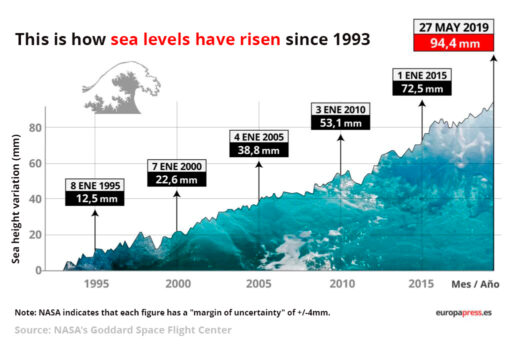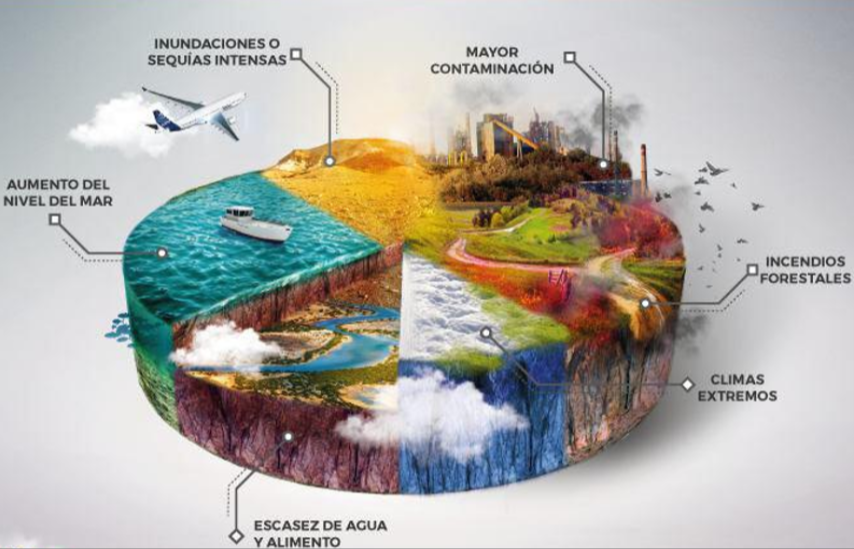Global warming is the increase in the average temperature of the earth's oceans and atmosphere, which has been alarming in recent decades. This is a major problem because the entire planet functions by chemical reactions, which are temperature-dependent, so the planet's equilibrium is at stake.
The main cause is the massive emission of greenhouse gases (hereafter GHGs), which retain the heat from the Sun and the thermal radiation produced by the Earth within the atmosphere and on the Earth's surface, keeping the planet's temperature approximately 33°C above what it would be if they did not exist. The main GHGs emitted include water vapour, carbon dioxide, methane and ozone.
The direct effects of global warming are: water shortages, floods, storms, heat waves, droughts, fires, spread of diseases such as malaria, dengue fever, yellow fever and cholera, increased environmental pollution, malnutrition.
Some of the consequences that have already occurred include:
The main cause is the massive emission of greenhouse gases (hereafter GHGs), which retain the heat from the Sun and the thermal radiation produced by the Earth within the atmosphere and on the Earth's surface, keeping the planet's temperature approximately 33°C above what it would be if they did not exist. The main GHGs emitted include water vapour, carbon dioxide, methane and ozone.
The direct effects of global warming are: water shortages, floods, storms, heat waves, droughts, fires, spread of diseases such as malaria, dengue fever, yellow fever and cholera, increased environmental pollution, malnutrition.
Some of the consequences that have already occurred include:



